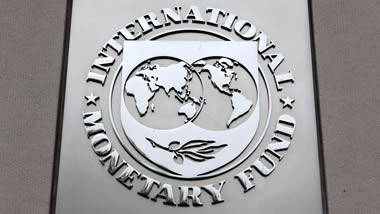The International Monetary Fund has agreed to give Egypt $820 million as part of a larger effort to help the country's struggling economy.
The IMF's Executive Board has approved the release of $820 million as part of a $3 billion aid program that was established in late 2022.
The IMF's decision, which was eagerly anticipated by the Egyptian government, comes at a time when the country is facing increasing economic challenges.
The Board has also sanctioned a $5 billion extension that was announced earlier this month, bringing the total IMF lending to Egypt to $8 billion.
In a statement sent to AFP on Friday, the IMF stated that the Egyptian government has met all the goals set in the initial two phases of the aid program, except for the level of its foreign currency reserves.
IMF Managing Director Kristalina Georgieva remarked in the release that "The authorities have significantly strengthened the reform package."
She added that "Recent measures to correct macroeconomic imbalances, such as unifying the exchange rate… and implementing significant adjustments to monetary and fiscal policies, were challenging but crucial steps forward."
Earlier this month, Egypt's central bank raised rates by six percentage points to 27.75 percent in order to combat inflation and align the official exchange rate with the black market rate, resulting in a 40 percent drop in the value of the Egyptian pound in one day after a 50 percent decline over the past few months.
Nearly two-thirds of Egypt’s 106 million inhabitants live below or just above the poverty line, and the country is facing a drop in foreign currency earnings, whether from tourism, the Suez Canal, or other sources.
According to the IMF, attacks by Yemen’s Huthi rebels in the Red Sea and Gulf of Aden have reduced dollar revenues from the Suez Canal by 40-50 percent since the beginning of the year, impacting global trade significantly.
Since coming to power in 2013, President Abdel Fattah al-Sisi has undertaken a series of major projects which, according to economists, have not brought in new revenues but have severely constrained the state's financial capabilities.
From 2013 to 2022, Egypt’s foreign debt increased from $46 billion to over $165 billion, making it the second most at-risk country for default after war-torn Ukraine, according to World Bank data.
Despite this, the IMF is fairly positive about the upcoming fiscal year, projecting a 4.4 percent increase in economic growth, compared to 3 percent in the current fiscal year ending June 30.
AFP



